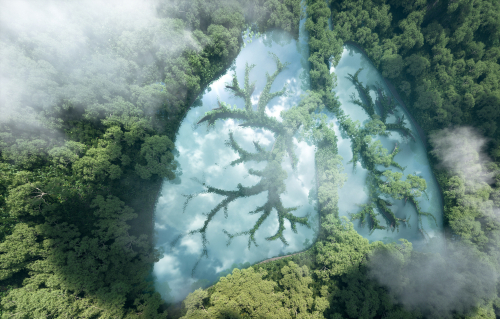Steps to protect our planet
Safeguarding the planet is a key pillar of the Saudi G20 presidency, with targeted efforts under way to protect and advance human well-being, biodiversity and planetary health
The need for effective multilateralism has never been greater or more urgent. As the global community faces one of the greatest health, economic, social, environmental and developmental challenges of our time, we must ask ourselves how we can prevent this from happening again. Certainly, these challenges are multifaceted and thus cannot be tackled in isolation. Cooperation across all domains and sectors of society will be critical in mobilising and scaling up action and prevention in order to reduce the risk of future pandemics. As the world ‘recovers back better’, recognising the intrinsic connection between human health and the health and resilience of nature must serve not just as a stark reminder of the negative human actions on nature, but also as the basis of a global integrated approach for One Health, so that policies are coordinated and multiple sectors work together to achieve better public health outcomes.
The Convention on Biological Diversity stemmed from a growing international recognition that biological diversity is a global asset of tremendous value to the present as well as to future generations. Unfortunately, selfish human activities were, and still are, gravely endangering it. It is no longer undeniable that biodiversity is the foundation of human life and the part of nature that is alive. It covers all the relationships between living beings and the natural world including their environments, and therefore is not limited to being solely an inventory of species. We cannot survive without the biodiversity that feeds us, houses us, cures us and provides us with the air we breathe and the water we drink – plus all that nature inherently nurtures and sustains for human well-being.
A blueprint for biodiversity
Parties to the convention are currently developing the Post-2020 Global Biodiversity Framework with contributions from all stakeholders. It will be the overarching and universal blueprint framework on biodiversity – not only for the convention and all biodiversity-related agreements, but also for the entire United Nations system as well as the global community at large. The framework, which is expected to be adopted at the 15th meeting of the Conference of the Parties in Kunming, China, will play a momentous role in building resilience in the face of growing environmental, health, food security and development challenges. It will galvanise the global community to seek collaborative, multistakeholder joint solutions across these sectors. Without an ambitious framework that is embraced by all partners and stakeholders, the current negative trends in biodiversity and ecosystems loss will continue to undermine progress towards global goals including the Sustainable Development Goals and those under the Paris Agreement.
The United Nations General Assembly Summit on Biodiversity on 30 September 2020 was an important milestone on the road to COP 15. It highlighted the strong interlinkages among climate change, biodiversity loss and land degradation. It reminded the international community that nature-based solutions, building on the preservation and restoration of biological diversity and ecosystems, offer an important opportunity for shared progress during the Decade of Action for Sustainable Development. As stated by the secretary-general of the United Nations, the world must take concerted action to safeguard our planet and ensure sustainable development that benefits the health, security and well-being of all peoples, particularly those in developing countries and among marginalised and vulnerable populations globally.
What is at stake
As we move to negotiate and adopt the framework next year, it remains urgent for the global community to increase its understanding of what is at stake, to foster action and the necessary transformation that secures the healthy future of this planet and all its peoples. This aligns extremely well with the themes of the G20 Riyadh Summit of empowering people, especially women and youth, and of safeguarding the planet by fostering collective efforts to protect our global commons. To achieve the level of transformation required to fulfil the needs of all peoples while protecting our planet, we need to work hand in hand with all sectors to reinforce the political importance of biodiversity at the highest levels. For this transformation to happen, the G20 plays the decisive role in moving the biodiversity agenda forwards without undermining its linkages with other sectors.
We will need transformative changes of our development models, as well as whole-of-government, whole-of-society integrated approaches on the basis of shared responsibility and global solidarity, in order to restore and protect nature, thereby ensuring the integrity and advancement of human well-being. Greener and sustainable post–COVID-19 recovery approaches provide an opportune moment for such transformation. It is my hope that the deliberations and decisions taken at the Riyadh Summit will provide further decisive steps in advancing this important global and multilateral agenda.
For more information click here












